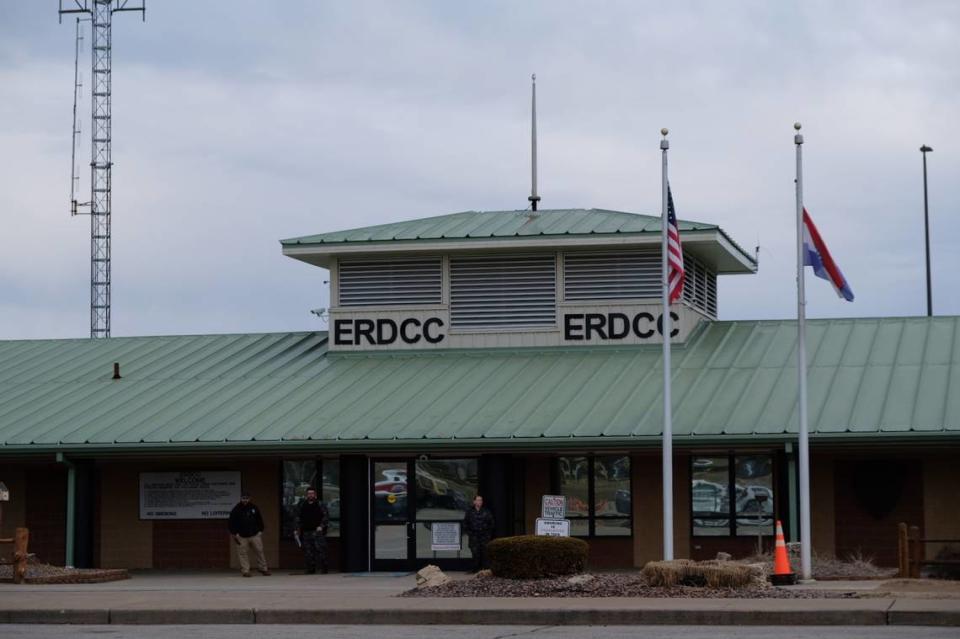Attorneys for Missouri man set for execution say he should never have faced death penalty
Attorneys for a man facing death by lethal injection in April say he is not guilty of capital murder.
Brian Dorsey’s execution would be “a manifest injustice,” his attorney Megan Crane said in a petition filed Sunday with the Missouri Supreme Court.
Dorsey, 51, was convicted in the 2006 killing of his cousin Sarah Bonnie and her husband Ben Bonnie in central Missouri.
His attorneys argue that he was experiencing drug psychosis the night of the double murder and was “incapable of deliberation – the requisite intent for capital murder.”
Dorsey struggled with addiction and depression from the time he was a teenager. Excessive drinking was encouraged in his home, the petition said, and he began binge drinking in high school. He was diagnosed with major depressive disorder and used alcohol and cocaine to self-medicate, which worsened his mental health condition.
On the night of the murders, he had not slept for more than three days and was experiencing psychosis from a cocaine withdrawal, the petition said. He had a history of psychosis, which included hallucinations and paranoid delusions.
Because of his state of mind, his lawyers said, he should not have been charged with capital murder. If he had been charged with second-degree murder, he would not be eligible for the death penalty.
But his two trial attorneys advised him to plead guilty with the death penalty still on the table. Crane said Dorsey was denied his Sixth Amendment right to effective representation.
His trial attorneys failed to conduct an independent investigation of the case and failed to speak to an expert about Dorsey’s state of mind before advising him to plead guilty.
“This falls far below the prevailing professional norms and is wholly unreasonable,” the petition said.
The trial attorneys were paid on a flat fee basis.
“Counsel were paid the same amount whether they did nothing for their client or worked the thousands of hours that is typical in a capital trial,” the petition went on to say.
Crane argues that a flat fee system creates a conflict of interest and goes against American Bar Association recommendations for death penalty cases.
Dorsey’s trial attorneys “made the fiscally sound decision to do no investigation and instead gamble” with his life, the petition said.
The petition asks the Missouri Supreme Court to overturn Dorsey’s death sentence or order an evidentiary hearing on the constitutional questions.
The Missouri Attorney General’s Office did not respond to a request for comment.
In a separate case filed on behalf of Dorsey, federal public defenders argued that Missouri’s execution protocols present a “substantial risk of serious, torturous, physical and psychological pain.”
Citing Dorsey’s exemplary prison record, 60 corrections staff members have said they support granting him clemency.
His family is divided – some oppose his upcoming execution while others want it to go forward.
Twelve people remain on death row in Missouri. Dorsey is scheduled to be executed April 9. Another man, David Russell Hosier, 69, is scheduled to die June 11.
Missouri is one of six states with executions scheduled for 2024, according to the Death Penalty Information Center.



